Medieval Treasures on Display in Madrid
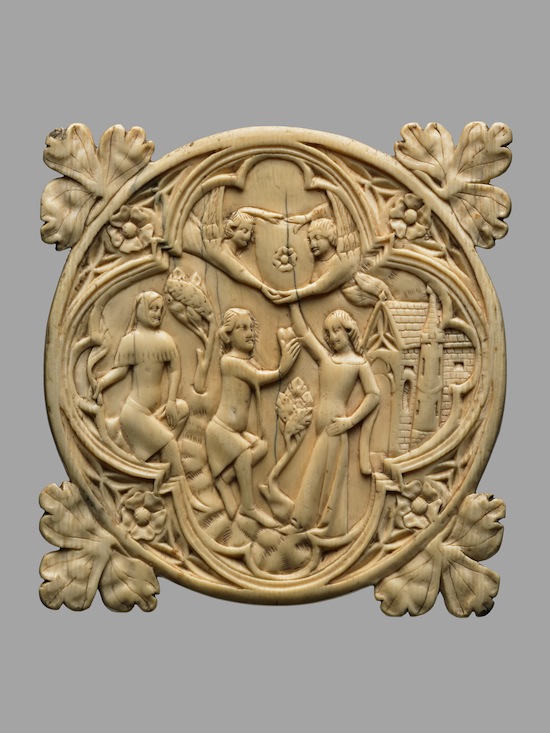
Mirror case, France, 1370-1400. Ivory. It depicts a love scene in a
garden where the happy couple hold a heart as cupids hover
overhead holding a shield and a hooded figure looks on.
One of Madrid’s leading private galleries is hosting a major exhibition on medieval art. The Pillars of Europe: Middle Ages in the British Museum brings together more than a hundred objects ranging from 400 to 1500 at CaixaForum’s Madrid branch.
The exhibition aims to show through objects and images how Europe transformed from the fragmentation after the fall of the Roman Empire through the Middle Ages and into the emerging nation states at the beginning of the Renaissance. An excellent map shows how borders shifted over the century, and a slideshow gives period depictions of Europe’s cities as they grew and became more prominent. The objects are grouped into four themes: Royal Power, Heavenly Treasures, Courtly Life, and Urban Life.
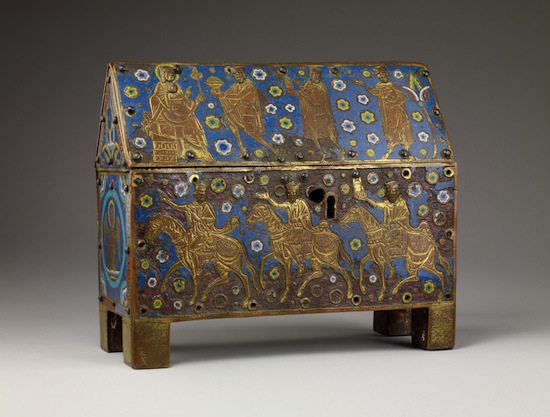
Reliquary, France, c. 1250, made of wood, copper, and enamel
As is typical of such broad-ranging exhibitions, coverage of the actual history is necessarily light. The average Black Gate reader has probably read all this information before. The objects, however, are outstanding. As the title indicates, most are from the British Museum, although they are supplemented by items from Madrid’s Museo Arqueológico Nacional. Both museums are well worth a visit for admirers of medieval art.
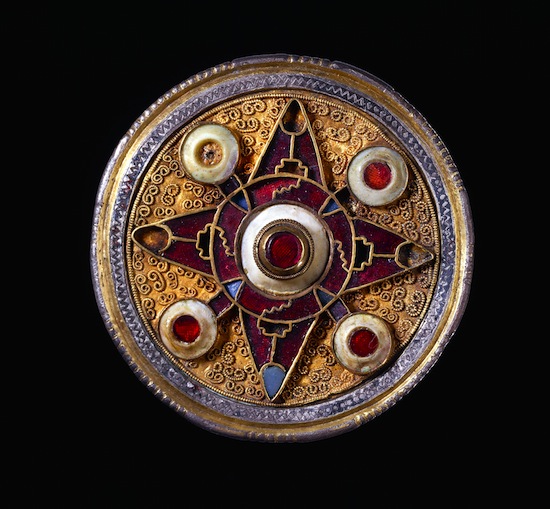
Wingham brooch, England, 575-625. Silver-gilt plated disc brooch;
nielloed border and gold appliqué with cloisonné garnet and
glass cross; five shell bosses; filigree
Given what I said above, I’ll just let the objects speak for themselves.
The Pillars of Europe: Middle Ages in the British Museum runs until 5 February 2017.
Photos copyright Trustees of the British Museum, all rights reserved. More below!
Sean McLachlan is the author of the historical fantasy novel A Fine Likeness, set in Civil War Missouri, and several other titles, including his post-apocalyptic series Toxic World that starts with the novel Radio Hope. His historical fantasy novella The Quintessence of Absence, was published by Black Gate. Find out more about him on his blog and Amazon author’s page.
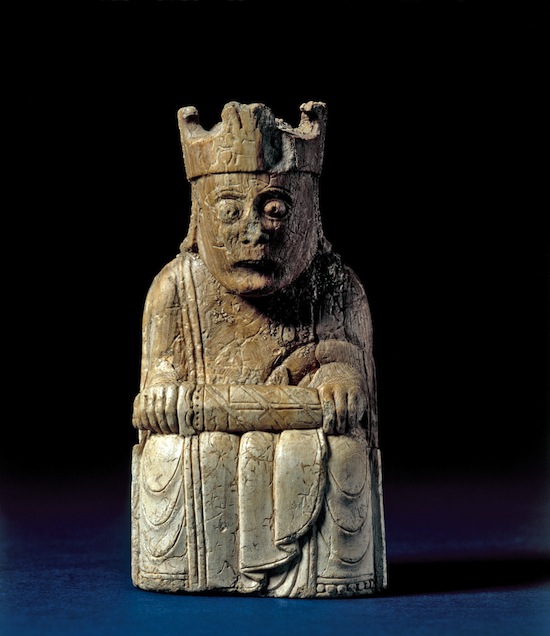
King from a chess set found on the Isle of Lewis,
Scotland, c. 1150-1175. Possibly Norwegian. Walrus ivory
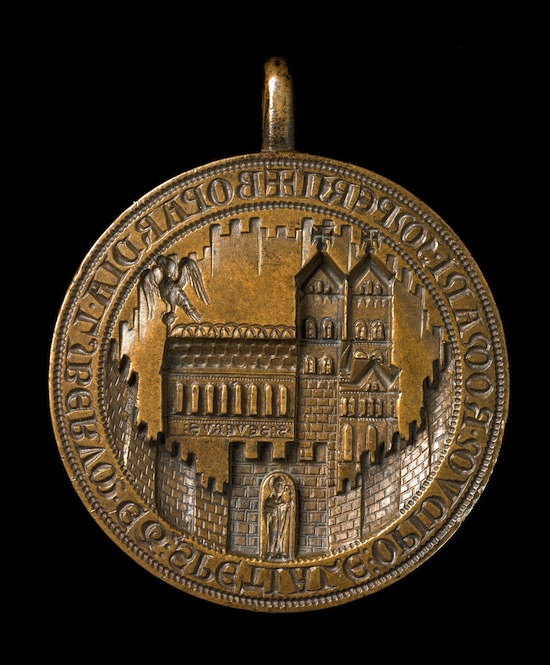
Wax impression from a stamp showing the city of Boppard, Germany, 1228-1236
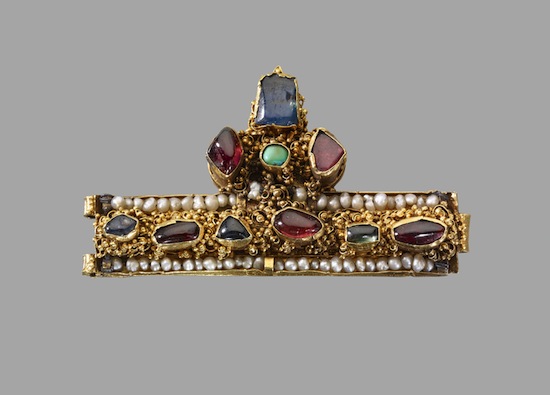
Fragment of a crown, Hungary or France, 1250-1300
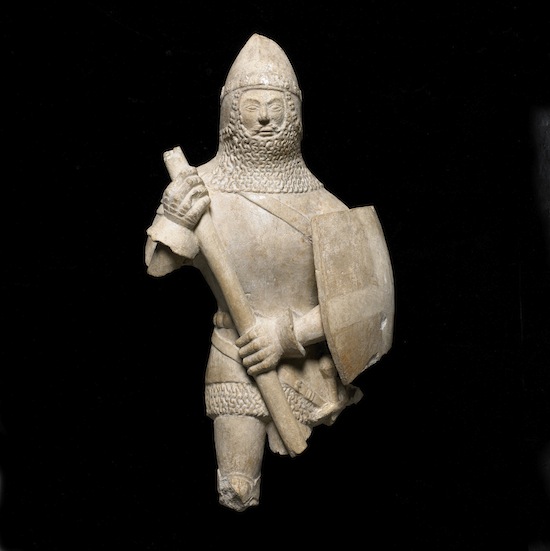
Statue of a knight, England, 1375-1425. Stone
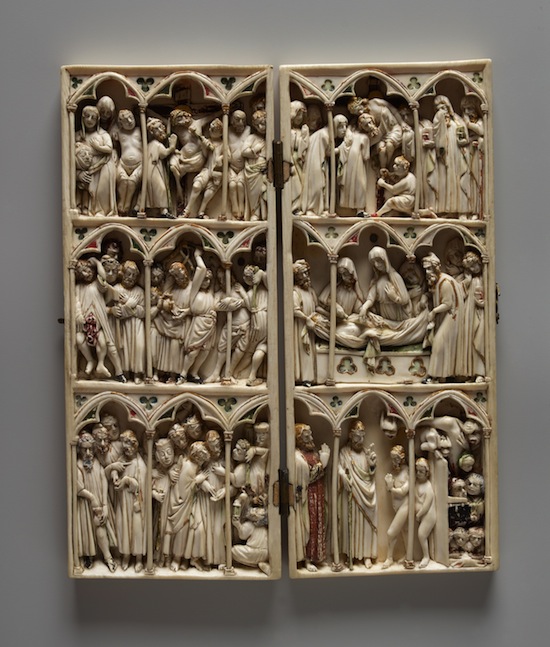
Diptych, France, 1300-1400. Mable. Six compartments show Christ’s Passion:
betrayal, the death of Judas, Christ mocked, Pilate washing his hands,
flagellation, crucifixion, descent from the cross, entombment, and
Harrowing of Hell. As you can see from some fragments of paint,
it was once brilliantly colored and gilded.
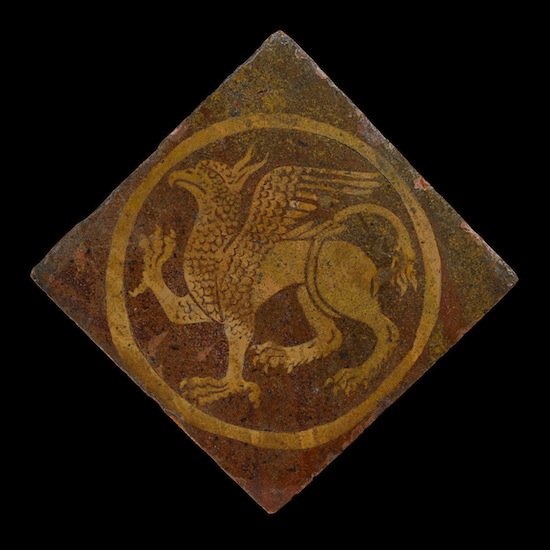
Floor tile, England, 1200-1300. Ceramic
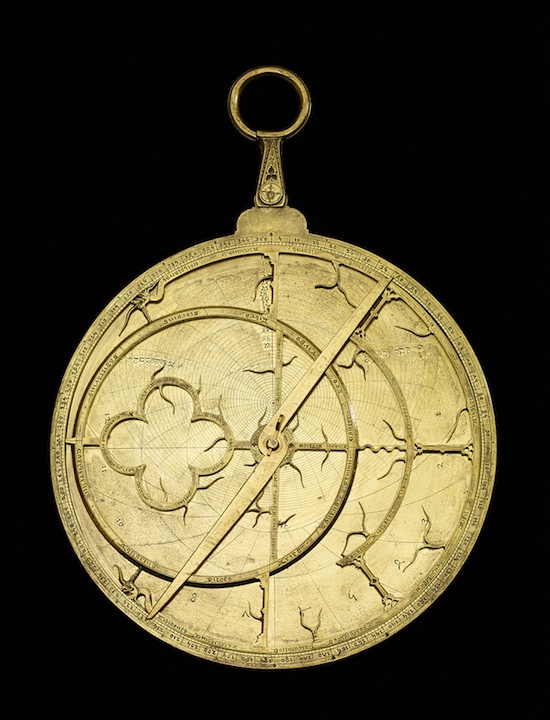
Astrolabe, England, 1342. Brass. Signed by its maker Blakene,
it’s the earliest signed and dated scientific instrument in Europe